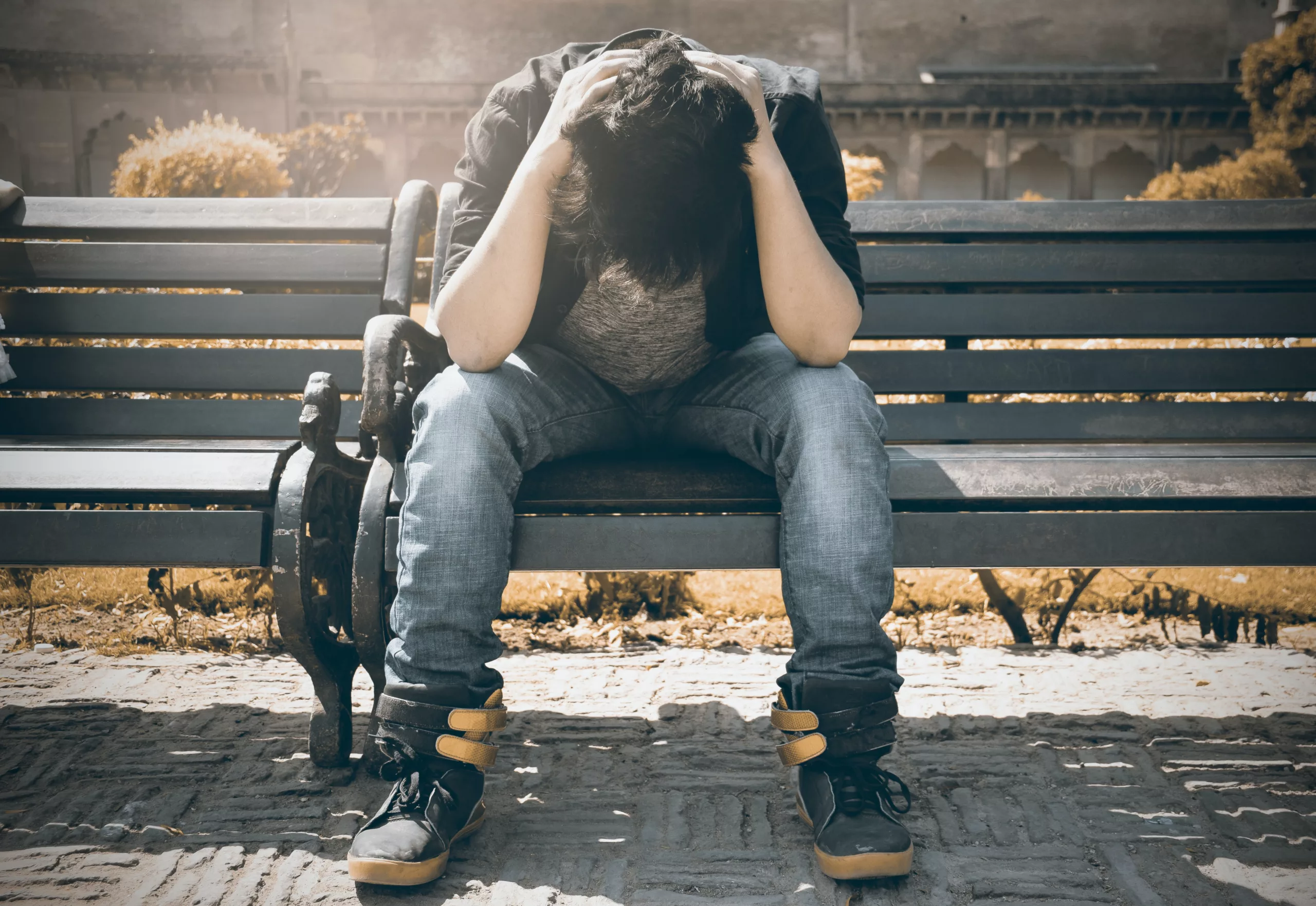Treatment of Co-occurring Disorders
In many cases, a person dealing with a substance use issue may also suffer from a mental health disorder. When this happens, it means that the individual is living with co-occurring disorders (multiple disorders that affect a person simultaneously). Co-occurring mental illness and substance use disorder is also commonly referred to as dual diagnosis.
Mental health conditions that co-occur with drug abuse challenge mental health clinics and addiction treatment centers. This is because many more risk factors are associated that can affect adequate treatment.
Integrated treatment programs are necessary to treat co-occurring disorders effectively. Any member suffering from withdrawal symptoms will have to go through detox before entering the treatment setting for their co-occurring disorder.
About Common Co-occurring Mental Health Conditions
Unfortunately, those who are suffering from mental health disorders often develop substance abuse problems as well. In fact, according to the 2020 National Survey on Drug Use and Health, more than 17 million adults experienced any mental illness and addiction in 2020. That is equal to 6.7% of the adult population.
The same study states that about 5.7 million adults had suffered from a serious mental illness and addiction in the past year. This equates to 2.2% of the adult population.
However, even though millions of people were struggling with drug addiction in addition to other mental health disorders, only thousands of people received treatment that dealt with their co-occurring disorders. The Survey states that approximately 50% of the adults who suffered from any mental illness and addiction received treatment for their co-occurring disorders. A little over 69% of adults with serious mental illness and substance use disorders received treatment.

One common misunderstanding regarding addiction treatment is that it’s only meant to help people become free from substance use disorder. But, the truth is that treatment should help individuals work through every element and contributing factor, including any co-occurring disorders.
We understand this truth here at Sana Lake Recovery Center. That’s why we provide dual diagnosis treatment that deals with addiction and any accompanying mental health conditions. Our clients receive care that helps them to work through each disorder and find total healing!
Everyone who enters our center will be assigned a Substance Use Counselor and a mental health therapist who will work together to develop an individualized plan that will address all underlying issues contributing to the substance use disorder.
Additionally, we will provide a peer support specialist to help facilitate relationships within the treatment community. They help guide each person on their treatment plan while encouraging them after treatment to help them stay motivated for long-term recovery from co-occurring disorders.
Why Treatment of Co-occurring Disorders is Important
In many instances, struggling with mental health may lead individuals to become addicted to medications, alcohol, or illicit drugs. Co-occurring treatment approaches should deal with mental health disorders and substance use disorders.
When it comes to getting treatment for co-occurring disorders, it’s important to understand various disorders and how they can affect people who are also dealing with substance abuse.
It’s also important to note that addiction develops due to several different factors. Sometimes, addiction develops because of genetics or certain environmental influences. However, mental health disorders are often partially responsible for addiction in people’s lives.


Depression
One disorder that commonly accompanies substance abuse is depression, also known as major depressive disorder. This mental health disorder affects millions of people every year.
Most people feel sad, lonely, or hopeless at some point or another. We all experience these emotions and thought patterns throughout our lives. But, depression is different from the natural emotional response to unfortunate situations we may face.
Major depressive disorder, also called clinical depression, is more than the occasional and circumstantial sadness everyone feels from time to time. It’s a mental health condition that impacts many different aspects of life for those who suffer from it.
Those emotions persist for days, weeks, months, and even years for some people. Persistent emotion is definitely a sign that they are dealing with clinical depression.
Here are some of the signs and symptoms of major depression:
- Hopelessness
- Lack of energy
- Loss of motivation
- Agitation and irritability
- Feelings of loneliness
- Intense and extreme sadness
- Isolation and social withdrawal
- Lack of interest in social and family activities
The effects of depression can be very challenging. In some cases, the symptoms and effects of depression can become so overwhelming that individuals may turn to substance use disorder in order to find relief.
Some people engage in alcohol use disorder to escape from depression symptoms. Others may use medication to treat their symptoms and, eventually, become dependent on the prescription drugs they’re using.

Anxiety Disorders
Sometimes, people who are suffering from addiction are also suffering from a co-occurring anxiety disorder. This means that they suffer from consistent and sometimes unprompted anxiety. Often, people who have anxiety disorders feel anxious without really understanding why.
There are multiple types of anxiety disorders, each one having particular effects and symptoms.
-
Social Anxiety
-
Generalized Anxiety Disorder (GAD)
-
Panic Disorder
Individuals who live with this disorder suffer from anxiety when they encounter a social setting or situation. The thought of spending time with a large group may cause symptoms of anxiety. These symptoms might include nausea, excessive sweating, and increased heart rate.
Social Anxiety often causes people to feel uncomfortable at school, work, and social gatherings or events.
The Anxiety and Depression Association of America says that general anxiety disorder (GAD) “affects 6.8 million adults, or 3.1% of the U.S. population, in any given year”.
People who suffer from this particular anxiety disorder may feel extremely concerned and worried about various matters. They may experience persistent anxiety regarding their jobs, health, and finances.
This mental health disorder is characterized by panic attacks. These are bouts of horror and terror that affect those who suffer from panic disorder. Individuals who experience panic attacks feel sudden and unexpected episodes in which they feel symptoms such as dizziness, heart palpitations, chest pain, and shortness of breath. Individuals may begin to shake or tremble as a result of a panic attack.
These attacks can also cause people to feel a sense of doom or intense fear. Some individuals may even feel as though they are choking or being smothered. Panic attacks can cause a person’s heart rate to accelerate and may cause excessive sweating, as well.
What Are Some Other Common Co-occurring Disorders?
Multiple disorders might occur alongside addiction. As you begin to seek treatment for addiction and any accompanying disorders, it will be helpful to have as much information about these co-occurring disorders as possible.
Addiction commonly accompanies mental health disorders as individuals are looking for ways to “calm” their symptoms. This is often referred to as self-medicating and can lead to substance use disorder. Since drug and alcohol abuse will actually worsen a mental illness, this begins a vicious cycle that leads to co-occurring disorders.
Diagnosing mental health disorders can be difficult because many have similar symptoms.
Schizophrenia is a severe mental health disorder that impacts a person’s behaviors, feelings, and cognition. The way a person thinks and feels can be seriously affected by schizophrenia. In most cases of this disorder, individuals seem to lose touch with what is real as they experience symptoms such as:
- Hallucinations
- Delusional thinking
- Dysfunctional thinking
Those who suffer from this psychiatric illness may often have difficulty with decision-making. They may have trouble experiencing genuine pleasure and may have reduced emotional responses. Schizophrenia can negatively affect a person’s memory and ability to process and utilize information. Finally, schizophrenia can cause people to struggle with focus and concentration.
This psychiatric illness is commonly known as PTSD. People experience this disorder as a result of traumatic experiences. Some individuals who deal with PTSD have been through violent and abusive domestic situations. Others may be veterans who have been in a war zone.
Post-Traumatic Stress Disorder (PTSD) also affects people who have witnessed an unsettling event, such as a car accident. Some of the symptoms of PTSD include flashbacks, avoidance of people or places related to the traumatic event, insomnia, agitation, and nightmares.
Any environmental factors can trigger flashbacks and emotions to an individual suffering from PTSD without the individual understanding why. PTSD is a common mental illness that co-occurs with substance use disorders.
Commonly known as OCD, this mental disorder is characterized by compulsions and obsessions. Those who have OCD experience compulsive behaviors as well as obsessive behaviors.
Some commonly occurring compulsive behaviors might include:
- Excessive hand washing
- Excessive cleaning
- Repetitive checking (i.e., constantly checking that a door is locked)
- Counting, organizing, ordering, and reordering objects, etc.
Some of the obsessive behaviors that often affect those who suffer from OCD include the following:
- Intense fear of germs
- Severe fear of contamination
- Recurring and unwanted “forbidden” thoughts
- Aggressive or negative thoughts towards oneself or others
- Obsession with symmetry, order, or organization
These obsessions and compulsions are uncontrollable for the individual who suffers from obsessive-compulsive disorder.
Individuals who struggle with codependency often exhibit behaviors that are harmful in relationships with others. Codependent people may struggle to focus on their own needs, constantly and excessively placing another person’s needs before their own. They may constantly make sacrifices in order to make someone else happy, even if it means never truly experiencing happiness themselves.
Codependent individuals may enable the harmful behaviors of others. These behaviors might include physical abuse, mental abuse, drug misuse, and alcohol use disorder. Often, people who are codependent feel afraid of losing a relationship, so they continue to enable harmful behaviors and focus solely on the other individual’s wants and needs.
Those who suffer from codependency may have low self-esteem and have a poor sense of boundary-setting. They may show signs of “people-pleasing” as they constantly consider others above themselves in unhealthy ways. Codependent individuals may also try to control the people around them in order to feel a sense of safety or security.
Why codependency is not considered a mental illness, it’s more of a psychological construct that often leads to substance use disorder. Codependency usually develops from traumatic environmental factors in a person’s younger years.
Bipolar disorder is a mood disorder that affects the way people feel and behave. It affects people’s energy levels and ability to concentrate or focus. Bipolar disorder often causes people to struggle to complete daily activities and function normally.
While there are multiple types of bipolar disorder, each one is characterized by changes in mood and energy. Those who have bipolar disorder may experience “high” moods in which they are extremely energized and elated. These are known as manic episodes. Other times, people may experience “low” periods in which they feel depressed or indifferent. They may feel extremely sad or hopeless. These are known as depressive episodes.
The three main types of bipolar disorder are as follows:
- Cyclothymic Disorder
- Bipolar I Disorder
- Bipolar II Disorder
Racing thoughts, reckless behaviors, fast speech, decreases in appetite, jumpiness, irritability, and grandiose thoughts may all occur in manic episodes.
Restlessness, appetite increases, hopelessness, forgetfulness, slow speech, lack of concentration, feelings of worthlessness, and suicidal thoughts may all occur in depressive episodes.
A personality disorder is a mental illness defined as a way of thinking or behaving that is different from what is deemed “normal” and acceptable. In other words, a person who has a personality disorder may think, act, or feel significantly different than most others.
Types of personality disorders:
- Borderline personality disorder
- Schizotypal personality disorder
- Avoidant personality disorder
- Dependent personality disorder
- Antisocial personality disorder
- Narcissistic personality disorder
- Obsessive-compulsive personality disorder
- Histrionic personality disorder
- Schizoid personality disorder
- Paranoid personality disorder
Different symptoms and behaviors characterize each disorder. But those who have personality disorders generally think of themselves or others in a way that is drastically different from what is usually accepted in society. They may also have very complex or unusual emotional responses and physical behaviors.
Treatment for Co-occurring Disorders
There are several types of treatment programs for co-occurring disorders. Finding the right integrated treatment program will depend on the type of mental illness and substance use you are currently suffering from.
At Sana Lake, we offer outpatient and inpatient treatment for co-occurring disorders. Ideally, outpatient treatment approaches should be reserved for individuals that are suffering from mild drug addiction and mental health symptoms. Inpatient treatment is recommended for more severe mental illnesses and drug abuse.
Sana Lake Recovery Center recommends a partial hospitalization program to treat mental illness and substance use disorder as an outpatient approach. And for individuals that may be suffering from more serious psychiatric disorders and substance abuse, they seek our residential treatment program. However, before any member starts co-occurring disorder treatment, we start with a full evaluation and detox for any withdrawal symptoms.
After completing mental health and addiction treatment for co-occurring disorders, members should consider an aftercare program to continue monitoring their progress.
Medication Treatment for Co-occurring Disorders
Medications are important for effective mental health treatment. However, when mental illnesses are paired with drug addiction, our treatment facility must make sure we take into consideration the members’ physical health and drug abuse history. Integrated treatment of co-occurring disorders requires making sure that medications do not trigger addictive behaviors or mental health issues.
Our professional treatment setting will thoroughly review each member’s mental health diagnosis and substance abuse disorders before prescribing any medications. We will also monitor all physical health conditions as the member continues through the treatment program. Remember to discuss any side effects you might experience from medications. It may take some time to find the right combination of medications to treat your mental health condition.
Behavioral Therapies for Co-occurring Disorders
Therapy is the cornerstone for any mental health treatment or substance abuse treatment. Therefore, various behavioral therapies will be necessary for effectively treating co-occurring disorders.
Sana Lake offers a variety of therapy options as part of our integrated treatment for co-occurring disorders. During your initial evaluation, our medical team will review your substance abuse and mental health symptoms to determine
Individual Therapy
Often referred to as psychotherapy, individual therapy allows members to discuss their mental health condition and substance use disorder in a private environment with a licensed psychiatrist. Having co-occurring disorders can be difficult to share in a group setting when first entering treatment. Individual therapy helps members open up and discuss the struggles related to co-occurring disorders.
Cognitive Behavioral Therapy (CBT)
Cognitive-behavioral therapy focuses on training members on how to recognize thoughts that lead to substance use disorders. By learning how to recognize these thought patterns, they can refocus their thoughts to lead to more beneficial and productive actions.
Dialectical Behavioral Therapy (DBT)
DBT is an extension of cognitive-behavioral therapy in that it focuses on retraining members’ thought patterns in order to lead more productive behaviors. However, dialectical behavioral therapy expands on CBT as patients can learn coping techniques, methods to self-soothe, and skills for problem-solving to help them manage their co-occurring mental illnesses.
DBT was originally designed to help patients with borderline personality disorder, but it has shown positive results in treating mood disorders, such as depression, bipolar disorder, and other psychiatric disorders.
Integrated Group Therapy
Group therapy offers the opportunity for members to discuss their struggles with co-occurring disorders with others who are dealing with similar co-occurring conditions. Having the opportunity to discuss difficult emotions that accompany mental disorders and substance abuse with others reinforces that members are not alone. Co-occurring disorders can be difficult for someone to reflect on and understand. By recognizing the same actions and thoughts in another, they are more likely to accept the conditions.
Online Therapy
Since the COVID 19 Pandemic Sana Lake Recovery Center has expanded its addiction treatment and mental health services options to include online therapy. This has proven to be an excellent addition to our integrated treatment approaches for substance use disorder, mental illness, and individuals that suffer from co-occurring disorders. Online therapy can offer members the opportunity to begin treatment in a more comfortable environment or simply supplement their current integrated treatment regimen.
Continuum of Care: Aftercare and Sober Living
Aftercare programs are essential to long-term recovery from co-occurring disorders. Mental health conditions also require ongoing medication management and therapy. This is also true for long-term addiction treatment. Managing your co-occurring conditions can feel overwhelming, but your mental illness and substance abuse problems should subside significantly with a supportive aftercare program.
Aftercare programs support you in maintaining an ongoing treatment regimen by assigning you supportive counselors to check in with your progress. You’ll have the opportunity to adjust your ongoing mental health and relapse prevention measures as your needs change in recovery.
Receive Co-occurring Disorder Treatment at Sana Lake Recovery Center
There is hope if you or someone you know is suffering from addiction and a co-occurring mental health disorder such as depression or generalized anxiety disorder. Peace and healing are available through the professional treatment programs here at Sana Lake Recovery Center.
We are dedicated to making sure each of our clients finds freedom from co-occurring disorders. So, there is no need to wait any longer; you can get the help you need today! Contact Sana Lake Recovery Center for information on getting help for yourself or your loved one today.



